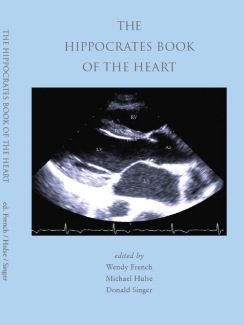The Hippocrates Book of the Heart was launched in Sydney on 26th
September 2017 by Andrew Dimitri, Geoffrey Lehmann, Stephen Edgar from Australia and Michael Hulse from the UK. The launch took place at the
Wallace Wurth Faculty of Medicine building at the University of New South
Wales.
ISBN 978-0-9935911-1-2 UK: £12 Ireland: €15 US: $18 CAN: $24 AUS: $24
NZ: $30
Michael Hulse spoke about the Hippocrates Prize and Initiative for
Poetry and Medicine. This was followed by readings from the Hippocrates Book of
the Heart by Andrew Dimitri, Stephen Edgar and Geoffrey Lehmann.
 |
| Andrew Dimitri, Geoffrey Lehmann, Stephen Edgar, Michael Hulse |
 The book brings together eighty contemporary poets of the
English-speaking world and a dozen medical experts from around the globe to
offer their perspectives on the heart.
The book brings together eighty contemporary poets of the
English-speaking world and a dozen medical experts from around the globe to
offer their perspectives on the heart.Since ancient times, the heart has been understood as the seat of the emotions, of the will, even of the soul. Over time, a fuller medical understanding of the organ has gradually evolved too, with Harvey’s first complete account of the circulation of the blood and the heart’s role (1628) and the 50th anniversary this week of Dr. Christiaan Barnard’s first successful heart transplant (1968) marking key moments in a history that has given us a much better understanding of our hearts – and how to ensure they stay healthy.

 In compiling this book, the editors invited poets around the
English-speaking world, both prominent and less well-known, to contribute poems
about the heart, written from any perspective, whether clinical or fanciful,
medical or metaphorical. Among the poets are Griffin Poetry Prize winners Roo
Borson and David Harsent, Forward Prize winners Sean O’Brien, Hilary Menos and
Nick Mackinnon, former New Zealand Poets Laureate Elizabeth Smither and C. K.
Stead, former National Poet of Wales Gwyneth Lewis, and President of PEN
International Jennifer Clement. They are joined by many other distinguished and
rising poets, including Robert Gray, John Kinsella, Peter Goldsworthy, Stephen
Edgar and Geoffrey Lehmann from Australia; Anna Jackson, Jenny Bornholdt and
Chris Price from New Zealand; Grace Schulman, Rafael Campo, Matthew Thorburn,
Debora Greger and Jeffrey Harrison from the US; Marilyn Bowering and Kenneth
Sherman from Canada; Justin Quinn, Mary O’Donnell and John F. Deane from
Ireland; and Jane Draycott, Philip Gross, Mimi Khalvati, Lawrence Sail and
Penelope Shuttle from the UK.
In compiling this book, the editors invited poets around the
English-speaking world, both prominent and less well-known, to contribute poems
about the heart, written from any perspective, whether clinical or fanciful,
medical or metaphorical. Among the poets are Griffin Poetry Prize winners Roo
Borson and David Harsent, Forward Prize winners Sean O’Brien, Hilary Menos and
Nick Mackinnon, former New Zealand Poets Laureate Elizabeth Smither and C. K.
Stead, former National Poet of Wales Gwyneth Lewis, and President of PEN
International Jennifer Clement. They are joined by many other distinguished and
rising poets, including Robert Gray, John Kinsella, Peter Goldsworthy, Stephen
Edgar and Geoffrey Lehmann from Australia; Anna Jackson, Jenny Bornholdt and
Chris Price from New Zealand; Grace Schulman, Rafael Campo, Matthew Thorburn,
Debora Greger and Jeffrey Harrison from the US; Marilyn Bowering and Kenneth
Sherman from Canada; Justin Quinn, Mary O’Donnell and John F. Deane from
Ireland; and Jane Draycott, Philip Gross, Mimi Khalvati, Lawrence Sail and
Penelope Shuttle from the UK.
Leading medical professionals whose practice and research has led them
to a keen interest in the health of the heart contribute information and advice
to the book. In clear, crisp mini-essays they illuminate the nature of heart
disease, the key risk factors, the history of cardiac surgery, and the most
important steps every one of us can take in trying to maintain a healthy heart.
Our medical professionals, based in Russia, Finland, The Netherlands, France,
the UK, Australia and Hong Kong, agree in their core message: maintaining a
healthy heart is possible for every one of us, and is crucial to our overall
health and well-being throughout our lives.
The result is that rare thing, a book that satisfies the Horatian dictum
that writing should both delight and instruct.
To enter for the 2018 Hippocrates Prize for Poetry and Medicine, go to hippocrates-poetry.org|
The 2018 judging panel
- for the International Open category and the International Health
Professional categories: Mark Doty, USA, Carol Rumens, UK, Dr Peter
Goldsworthy, Australia
- for the Hippocrates Young Poets Prize: Alisha Kaplan, Canada.
Deadline for Hippocrates Prize for Poetry and Medicine:
International Open and International Health Professional categories: at the end of 14th February, 2018 - 12 midnight in the time zone of the applicant.
Deadline for Hippocrates International Young Poets Prize for Poetry and Medicine:
at the end of 1st March, 2018 - 12 midnight in the time zone of the applicant.
Deadline for Hippocrates Prize for Poetry and Medicine:
International Open and International Health Professional categories: at the end of 14th February, 2018 - 12 midnight in the time zone of the applicant.
Deadline for Hippocrates International Young Poets Prize for Poetry and Medicine:
at the end of 1st March, 2018 - 12 midnight in the time zone of the applicant.
Awards date: Friday 11th May 2018 at The Poetry Foundation,
Chicago, USA
The winning poems and commendations in all the 2018 Hippocrates
Awards will be published in the annual Hippocrates Prize Anthology.
With a prize fund of £5500 for winning poems in the Open International
category and NHS category, and £500 for the Young Poets Award, the Hippocrates
Prize is one of the highest value poetry awards in the world for a single poem.
The prize comprises a 1st, 2nd and 3rd Prize and 20 commendations in each of
the Open and NHS categories and further commendations in the Young Poets Award.
In its first 7 years, the Hippocrates Prize has attracted over 8000 entries
from over 60 countries, from the Americas to Fiji and Finland to
Australasia.










